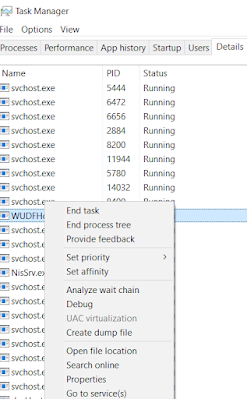Mastering C#: Avoiding Common Pitfalls for Successful Programming
Programming in C# is an exciting venture, but even the most seasoned developers encounter common pitfalls that can make the coding journey a bit challenging. In this comprehensive guide, we'll dive deep into the first four common programming mistakes in C# and explore simple yet effective solutions. Whether you're just starting or looking to sharpen your skills, understanding these nuances will undoubtedly make your coding experience more enjoyable.
Not Using Exception Handling Properly
Exception handling is like a safety net for your code. Imagine your program encounters an unexpected issue, like trying to divide by zero or accessing an array element that doesn't exist. Without proper exception handling, your program might crash, leaving users perplexed.
Common Mistake: Catching all exceptions in one go.
Solution: Use the `try-catch` block to catch exceptions and handle them gracefully. Instead of catching all exceptions at once, identify specific exceptions that might occur and handle them individually. This way, your program can recover from errors without crashing.
try
{
// Code that might
throw an exception
}
catch (SpecificException ex)
{
// Handle specific
exception
}
catch (AnotherException ex)
{
// Handle another
specific exception
}
Memory Leaks and Resource Management
Forgetting to clean up resources, such as file handles or database connections, can lead to memory leaks. A memory leak happens when your program allocates memory but fails to release it when it's no longer needed, potentially slowing down or crashing your application.
Common Mistake: Not disposing of objects that implement `IDisposable`.
Solution: Utilize the `using` statement for objects that implement `IDisposable`. This ensures that resources are properly disposed of when they're no longer needed.
using (FileStream fileStream = new
FileStream("example.txt", FileMode.Open))
{
// Code using
fileStream
} // fileStream is automatically disposed here
Inefficient String Concatenation
String manipulation is a frequent task in programming, but inefficient handling can impact performance. Concatenating strings using the `+` operator inside a loop, for example, can lead to performance issues.
Common Mistake: Inefficient string concatenation within loops.
Solution: Optimize string concatenation using `StringBuilder`, a class designed for efficient string manipulation.
StringBuilder resultBuilder = new StringBuilder();
for (int i = 0; i < 10; i++)
{
resultBuilder.Append(i.ToString()).Append(" ");
}
string result = resultBuilder.ToString();
Neglecting Null Checks
Null references are a notorious source of errors in C#. Failing to check whether an object is `null` before accessing its properties or methods can result in a `NullReferenceException`.
Common Mistake: Not checking for `null` before accessing an object.
Solution: Always check for `null` before accessing an object. Use the null-conditional operator (`?.`) or the null-coalescing operator (`??`) for concise and safe null checks.
string name = GetName();
if (name != null)
{
int nameLength =
name.Length;
}
// Or using the null-conditional operator
int nameLength = name?.Length ?? 0;
By mastering these four common pitfalls, you're well on your way to writing more robust and efficient C# code. Stay tuned for upcoming articles where we'll continue exploring programming tips and best practices.
Also Check out the video which was created on this :
If you have more tips, please do share it in the comment section below
Happy coding!

Comments
Post a Comment